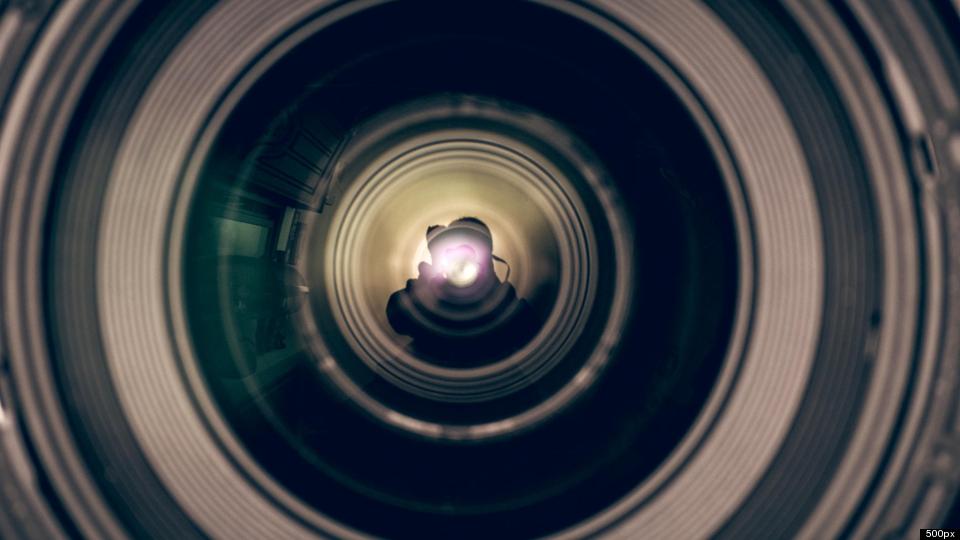
Few issues have as broad and spanning an appeal as transparency in government. Whether one is a liberal or progressive seeking to monitor the influence of powerful corporate lobbies, or a libertarian/conservative keeping a close eye on the perpetually untrustworthy public institution, citizens' desire to ensure an open and transparent government straddles nearly every political divide.
So it was that from this pressing, yet curiously under-discussed need that an unlikely coalition of media organizations, judicial watchdogs, civil libertarians and tax advocacy groups from across the spectrum came together to form the Coalition for Court Transparency (CCT.) As advocates for greater openness and accountability in the nation’s high court, CCT has recently begun a petition and letter writing campaign calling for, among other things, the installation of television cameras in the chambers of the Supreme Court.
The call to televise SCOTUS hearings is nothing new. For nearly 25 years, Brian Lamb, formerly the CEO of CSPAN, routinely led the charge for televising hearings. Penning an open letter in 1988 to then Chief Justice William Rehnquist, Lamb urged the court to allow recording and broadcasting of arguments and even offered the services and cooperation of CSPAN, calling it part of the network’s “public service mission.”
The progressive Alliance for Justice, the conservative Taxpayers Protection Alliance and the libertarian Liberty Coalition all joined together to form the CCT. Despite the groups' disparate ideological roots, judicial transparency has proven to be that rare issue that can unite those who are otherwise in many ways adversaries.
Yet despite the numerous arguments in favor of streaming or televising Supreme Court hearings – especially at a time when the most pressing issues in national dialogue are being argued as a matter of law before the court – calls for televised transparency have also faced detractors.
In 2013, Justices Anthony Kennedy and Stephen Breyer joined a congressional hearing on the matter, both citing concerns over potential influences that the presence of cameras might have on arguments, questions and deliberations.
While Justice Kennedy stated that the presence of cameras would present an “insidious dynamic” to the courtroom, Justice Breyer expanded on the point, telling members of the hearing committee that he feared if justices and attorneys could see themselves, their arguments, their questions and positions portrayed on TV, it might alter their behavior as a result.
The Justices are not alone in this sentiment. Many attorneys and legal professionals have argued that knowing cases and arguments were being televised, individuals and professionals could end up “playing to the camera,” at the expense of their arguments and presentation.
However, in a 2012 interview with the Washington Post, Lamb refuted the claims. “The people that have the most to lose by playing to the cameras are the attorneys, because if they play to the cameras and grandstand, that will have an impact on their cases,” he said.
Even the current court itself has revealed divergent opinions between the Justices on the issue. Despite Justice Breyer's stated opposition to the cameras proposal in 2013, his tune changed slightly when he stated earlier this year that due to the changes society has undergone in his lifetime, he’s now “sort of in the middle.”
In 2005, Justice Samuel Alito offered his own tempered response to the question, stating that he was in favor of cameras during his time in the Third Circuit and would keep an “open mind” in regards to doing the same in the Supreme Court.
In contrast to their male colleagues (nearly all of whom have expressed opposition or indifference), Justices Ruth Bader Ginsburg, Elena Kagan and Sonia Sotomayor have expressed almost consistent support for televising what Justice Kagan in 2009 described as “an extraordinary event.”
Last week, the website Openscotus.com announced what it claimed to be a silver lining to the likely rejection of the proposed installation of cameras. In response to a letter written in March by the coalition to Chief Justice John Roberts, Supreme Court Public Information Officer Kathy Arberg wrote that “there are no plans to change the court's current practices.”
In addition to their calls for televised access to the court’s hearings and cases, CCT has also called for greater transparency in regards to financial disclosures by Justices, the issuing and editing of opinions handed down by the court, and greater openness in regards to the issuing of press credentials – which although they're not handled by the court directly, are themselves increasingly subject to scrutiny and bureaucratic difficulty.
With issues like corporate personhood, the religious rights of those corporate persons, the power of organized labor, and the endlessly debated legal framework for the Affordable Care Act all being decided and ruled upon by the nation’s highest court, the debate over access and transparency to hearings isn't likely to subside. With coalition partners ranging the ideological gamut, and legislative proponents for court transparency standing up on both sides of the aisle, the demand for a more open and public court could be an interesting case that plays out not only before the justices and elected officials – but in the court of public opinion.
3 WAYS TO SHOW YOUR SUPPORT
- Log in to post comments












